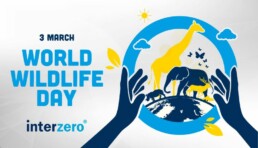The timetable of the National Strategy for the Circular Economy
The Strategy had already been published in June 2022 together with the National Program for Waste Management. The time frame of the measures goes from the last quarter of 2022 to the end of 2026, the deadline by which all investments and reforms of the National Recovery and Resilience Plan will be completed.
The desire to initiate change becomes increasingly concrete with the approval of timelines and strategies to advance towards the complete circularity of the economy. The Ministry of Ecological Transition has approved a timetable with the aim of ensuring the country has an already planned path through indications of timing and details relating to the plans already foreseen in the National Strategy for the Circular Economy.
The MiTE defines the decree schemes for the establishment of extended producer responsibility (EPR) systems for “circular” strategic supply chains such as the textile and plastic sectors not intended for packaging. Regarding the ‘end of waste’, between the first and fourth quarter of 2023, the Ministry writes, the issuing of national decrees with the criteria for the cessation of waste qualification will be accelerated. Following the timing dictated by the program, the Ministry will issue decrees on sweeping soil, mixed plastics, textiles and batteries and accumulators. Furthermore, the regulation for the simplified authorization for preparing for reuse is expected to be adopted by the end of 2023.
Among the deadlines to be respected we find the commitment to transmit the draft ministerial decree which defines the regulation of the national electronic waste traceability register (Rentri). Other points to be respected according to the program include the identification of environmentally harmful subsidies that pose an obstacle to the implementation of the Circular Economy Strategy. By the end of the year, the aim is to complete the process for the approval of the ministerial decrees which will establish the rules of the system and introduce the new digital models of the loading and unloading registers and waste identification forms.
The governance of the strategy has been entrusted to the Observatory for the Circular Economy which has the task of monitoring, defining and identifying the steps and targets during the application of the Strategy and of updating the timetable. The report on the implementation of the Strategy will be updated annually and publicly accessible on the MiTE institutional website.
The transition towards the circular economy does not take place only through regulations and decrees, but is encouraged by the progress of financial incentive projects and schemes, the simplification of business networks with circular purposes, the regeneration of brown areas in circular eco-districts with a view to symbiosis industrial. For this reason, MiTE, in collaboration with the Ministry of Economic Development, declares its commitment to also focus on technical support systems for regulations.
The approval of programs whose objective is the complete transformation of the economy into a circular system shows how every type of commitment, on the part of consumers, companies, producers and institutions. Navigating European and local regulations does not represent an obstacle if supported by sector professionals like Interzero: with our commitment to supporting companies we act in the interests of the environment and the transition towards the circular economy.
Let's save animals from plastic
Environmental pollution affects plant and animal life all over the planet: it is estimated that one and a half million animals die every year, of which the majority are fish and seabirds. Research by the French Institute for Research and Development has underlined that the problem is not only the plastic ingested by animals, but also that which wraps itself, for example, around the necks of turtles, causing their death by suffocation.
Interzero Italia, a leading partner in integrated environmental solutions with a view to the circular economy, wants to be part of the change: reducing the human impact on marine environments begins with the terrestrial collection of polluting materials.
What corporate sustainability reporting involves
As the name itself says, it is a document that obliges some companies and professional entities to disseminate information on their environmental, social, economic impact… the aim is to reduce greenwashing, that is, that phenomenon that pushes many organizations to wear apparently ecological and sustainable clothes, but behind which there is in fact no substance.
These are, for example, communication and marketing strategies that aim to hide the negative impact of a certain activity, or even to invent the existence of actions that have little impact on the environment. The EU has established that from 2024 the standards according to which sustainability reporting takes place will have to be aligned on an international scale. This should help investors, civil society organizations, consumers and politicians to evaluate the non-financial performance of large international companies (those with at least 500 employees), and obviously also encourages companies to develop a responsible approach to business.
This Non-Financial Reporting Directive (NFRD) fills the gap left by Directive 2013/34/EU, in force for about ten years, but vague and insufficient with regard to the non-financial information it provides. So much so, that a net increase in the number of companies affected is expected: it will go from the current 11,700 to more than 50,000, according to forecasts.
How? Multinationals with more than 500 employees will have to collect data on their environmental impact, the social impact of their activities and the treatment of their employees, respect for human rights, their anti-corruption rules and the dose of human diversity in their workforce (based on age, gender, professional and educational background. The dissemination of information is therefore expected for the following year, in order to give organizations and bodies the opportunity to ascertain the working and production conditions in the analyzed company.
From 2025, however, the aforementioned obligations will also involve companies with half the employees, 250, and/or a turnover of 40 million euros. An important detail: the directive also concerns non-European companies which however operate in the EU territory with a turnover of over 150 million euros per year.
The well-known difficulty in identifying, understanding and following the directives means that companies like Interzero are necessary mediators for companies that want to comply with the new criteria established by the European Commission. EU member states have 18 months from their entry into force to adapt to new legislation.
World Wildlife Day
A day dedicated to biodiversity and the opportunity to raise awareness of the need to preserve it, because the risk of extinction of many species at an alarming rate is a fact.
This year’s focus, the Partnerships for Wildlife Conservation – Associations for the Conservation of Wild Life -, all the associations that help conserve species of animals and plants on a global and local scale.
The only way we have to stop the constant damage to living species? Collaboration.
At Interzero Italia “collaboration” is a key word: our team works with vocation and dedication to the development of integrated environmental solutions, contributing to a more circular and sustainable economic system, with tangible social, environmental and economic benefits.
Our #resourcesSaved study ( bit.ly/3YduRu1 ) demonstrates the commitment we make every day, together with our customers and partners, to save and reuse resources.
One world. Zero Waste.



